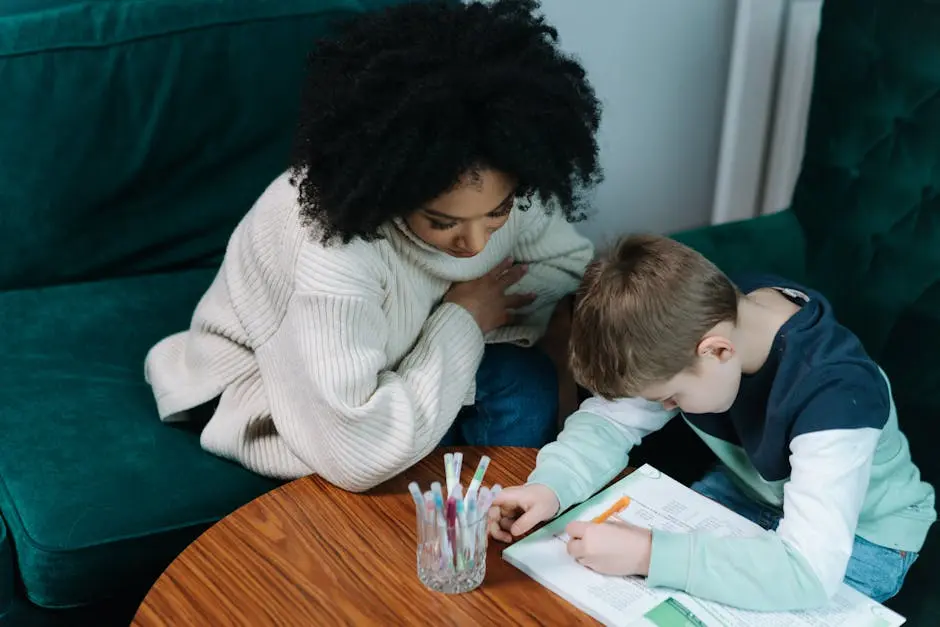In an ever-evolving academic landscape, students often find themselves seeking additional support to thrive. One-on-one tutoring is becoming a popular solution for personalized learning experiences. This blog will explore the key benefits of one-on-one tutoring and how it aids in academic success.
1. Customized Learning Experience
One of the primary benefits of one-on-one tutoring is the opportunity to cater the teaching method to the individual student’s learning style. Tutors can adjust their strategies to ensure that the student fully comprehends the subject matter.
This tailored approach is a significant departure from traditional classroom settings, where teaching methods are often designed to cater to a large group. In a one-on-one setting, tutors can adapt their teaching methods instantly in response to the student’s progress or areas of struggle, which promotes a deeper understanding and keeps the student engaged in the learning process.
The benefits of expert tutoring services extend beyond academic assistance. By aligning lessons with the learner’s strengths and interests, tutors can transform potentially dull or challenging topics into exciting and personally relevant material.
2. Focused Attention
Students benefit from undivided attention during tutoring sessions. This focus allows tutors to quickly identify challenges and address them effectively, often leading to significant improvements in academic performance.
Unlike classrooms, one-on-one tutoring provides an intimate and distraction-free environment where students can feel comfortable expressing confusion or curiosity without the fear of judgment from peers. This open communication is vital for deep learning and resolving any misconceptions swiftly to further enhance the learning experience.
3. Enhanced Confidence and Motivation
Personalized tutoring can help boost a student’s confidence as they overcome academic challenges. With improved understanding comes greater motivation to learn and succeed.
Consistent support and feedback encourage students to set and achieve progressively challenging goals. This continuous cycle of achievement and recognition significantly boosts self-esteem and inspires a positive attitude towards learning that extends well beyond the tutoring sessions.
4. Flexible and Adaptive Learning
Unlike traditional classroom settings, one-on-one tutoring offers flexibility. Lessons can be adapted on-the-go based on the student’s progress and current needs, making learning more efficient.
This flexibility in scheduling means tutoring sessions can fit more comfortably into the student’s lifestyle, reducing stress and creating a more conducive learning atmosphere. Tangibly, this adaptability enables tutors to modify topics and pace as necessary to keep learning optimized.
5. Improved Academic Performance
With tailored instruction and continuous feedback, students often see a noticeable improvement in grades and overall academic performance. Tutors help solidify concepts and build a strong foundation of knowledge.
By developing personalized strategies, students encounter fewer barriers to understanding complex subjects, enhancing their ability to excel academically and fostering a lifelong love of learning. This approach ensures academic goals are met and exceeded through customized plans.
6. Developing Critical Thinking Skills
One-on-one tutoring encourages students to think independently and critically. Tutors often inspire their pupils to explore different problem-solving techniques, promoting a deeper understanding of the subject matter.
By challenging students with diverse perspectives and tasks that require evaluating multiple solution paths, tutors cultivate critical thinkers able to navigate academic and real-world challenges confidently through advanced learning techniques.
7. Advanced Learning Techniques
Tutors often introduce students to advanced learning techniques and studying strategies that might not be covered in regular classrooms. These skills can aid students throughout their academic journey and beyond.
Such techniques may include enhanced study habits like mental mapping and spaced repetition, equipping students with tools essential for efficient learning and long-term retention. This empowers students to not only achieve immediate academic goals but also supports future learning endeavors.










